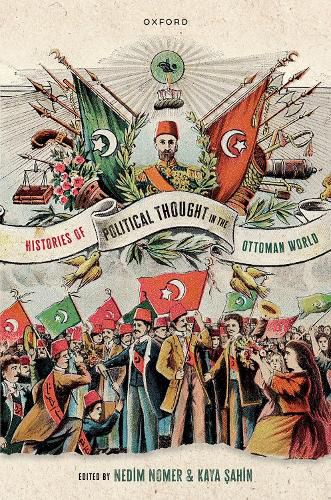Readings Newsletter
Become a Readings Member to make your shopping experience even easier.
Sign in or sign up for free!
You’re not far away from qualifying for FREE standard shipping within Australia
You’ve qualified for FREE standard shipping within Australia
The cart is loading…






This collection of papers is intended to provide a survey of the history of political ideas in the Ottoman world from its dawn around 1300 to its downfall in the early 20th century. It features fourteen original papers by some of the most prominent and innovative scholars of Ottoman history. The book sheds light on the complex role that ideas have played in all aspects of Ottoman social and political life throughout the history of the Ottoman world, across time, space, social class, and ethnic and religious identity. Histories of Political Thought in the Ottoman World takes exception to a common tendency, both among Ottoman historians and in the broader academic world, that considers Ottoman political life exclusively in terms of the political ideas of the Sunni Muslim governing elite. It makes clear that the non-elite, non-Sunni Muslim, non-Muslim, non-Turkish, and female members of the Ottoman society have also significantly contributed to the making of Ottoman political culture throughout its history.
$9.00 standard shipping within Australia
FREE standard shipping within Australia for orders over $100.00
Express & International shipping calculated at checkout
This collection of papers is intended to provide a survey of the history of political ideas in the Ottoman world from its dawn around 1300 to its downfall in the early 20th century. It features fourteen original papers by some of the most prominent and innovative scholars of Ottoman history. The book sheds light on the complex role that ideas have played in all aspects of Ottoman social and political life throughout the history of the Ottoman world, across time, space, social class, and ethnic and religious identity. Histories of Political Thought in the Ottoman World takes exception to a common tendency, both among Ottoman historians and in the broader academic world, that considers Ottoman political life exclusively in terms of the political ideas of the Sunni Muslim governing elite. It makes clear that the non-elite, non-Sunni Muslim, non-Muslim, non-Turkish, and female members of the Ottoman society have also significantly contributed to the making of Ottoman political culture throughout its history.